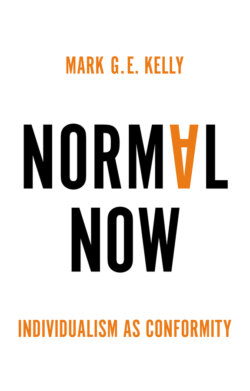Читать книгу Normal Now - Mark G. E. Kelly - Страница 7
ОглавлениеPreface
Am I normal?
Haven’t we all asked this question at one time or another? Some of us might ask it frequently. The answers we come up with surely vary, even for the same person at different times. Some defensively assert that there is nothing wrong with them, and indeed that it is, perhaps, other people, the ones who appear normal, who are the real weirdos. Many of us concede that there is something wrong with us, and schedule an appointment with a professional in search of a solution.
What is at the heart of such worries? What are we trying to achieve by either accusing others of being abnormal or seeking to improve or cure ourselves? Of course, the precise answers are as many and varied as human psychology itself, but there are some general motives that most or perhaps even all of us have, such as wanting to be healthy and happy. These general human goals seem to me precisely to have become subsumed by a more general and distinctively modern drive to be normal. Happiness as we understand it today is our affective norm, as health is our medical one.
What is normality? Like many of the concepts in the cognitive background to our lives, it is not immediately easy for us to define. Indeed, I will argue that it is not a concept that has been defined adequately even by experts in fields that rely on it. Moreover, I will suggest that it is a peculiarly insidious concept in the way that it evades a simple definition.1
This is a book about what is considered normal today and about how our conception of normality has changed in a seismic shift that is still moving the ground beneath us. I will claim that normality has, in the course of the last century, gone from being a series of differentiated social standards applying to different categories of person to being a network of contradictory and paradoxical standards that apply increasingly indifferently to everyone. The pressure to be normal has always put people in an ultimately impossibly difficult position, but the new normality adds to this an expectation that we conform by refusing to conform, leading to the profoundly confused form of subjectivity we all today embody in various ways.
This mutation in normality is perhaps barely half a century old. The very concept of ‘normality’ in which it has occurred was itself invented perhaps only a few centuries ago. Although the word ‘normal’ is part of our everyday vocabulary today, it is a fairly recent addition to the English language (from French or Latin), only two hundred or so years old. Only about a hundred years ago did it become a widely used word. Its relative novelty does give us reason to suspect that our contemporary normality might itself soon disappear, though we can have little idea what might replace it or when.
* * *
Over the years that I have been developing the thoughts presented in this book, the concept of normality has proved to be a mobile target. First, around the election of Donald Trump to the US presidency in 2016, a prominent discourse appeared about Trump ‘normalizing’ adverse behaviour. More recently, in 2020, the arrival of the COVID-19 pandemic saw changes to people’s lifestyles widely described as a ‘new normal’ (a phrase that was, prior to that year, the working title of this book, and which I abandoned to avoid this novel connotation).
Such invocations of the concept of normality, I would suggest, bear out my position that it is a central question in our society today. However, they invoke the concept in ways that are only obliquely related to how I discuss it here. The second chapter of this book does attend intensely to the Trump phenomenon, but I argue that he has actually normalized approximately nothing. I spend less time discussing COVID-19, partly because I think it is too early to draw any conclusions about its effects on norms, but also because I don’t as yet see much evidence of novelty in this relation either. As I detail in the first chapter, recent changed expectations around hand-washing and social distancing, albeit constituting a major change to our lifestyles, is not technically a ‘new normal’ as I understand it, but rather a modulation of the old normal standards, harking back, indeed, to the very origins of normality as a phenomenon. Face masks and restrictions on movement are blunt measures, which we experience as oppressive, but there is nothing very new about authorities intervening to affect our behaviour in ways that are supposed to be for our own good. It is entirely possible that the current pandemic will change our society such that it will produce a sea change in our norms – but I don’t think anyone can yet claim to know this or what it might look like. What I detail here are changes that were well underway long before the pandemic hit, and which show no obvious sign of dissipating in the face of it.
Notes
1 1 In making this claim, I am influenced by Stéphane Legrand’s reading of Foucault’s work on norms, although in point of fact I reject what he says as an interpretation of Foucault. Stéphane Legrand, Les Normes chez Foucault. Paris: Presses Universitaires de France, 2007. For my position, see Mark G. E. Kelly, ‘What’s in a Norm? Foucault’s Conceptualisation and Genealogy of the Norm’, Foucault Studies, 27, 2019.
